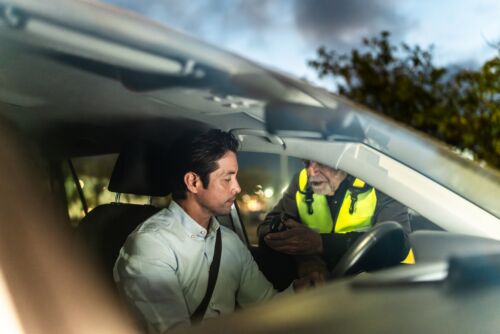



When a police officer suspects a driver is under the influence of alcohol, they will typically ask the driver to submit to a chemical test. Under Connecticut’s implied consent law, motorists operating a motor vehicle in the state and suspected of Driving Under the Influence (DUI) give their implied consent to submit to alcohol testing.
Refusing to submit to a chemical test carries severe consequences, including an automatic 24-hour driver’s license suspension and the potential for a longer license suspension. To protect their rights and build a strong defense against Connecticut DUI charges, Connecticut drivers should understand how Connecticut’s implied consent law works.
When a Connecticut driver obtains a driver’s license, they give their implied consent to submit to blood alcohol testing when requested by a law enforcement officer. Parents give implied consent for their child to be tested.
When a Connecticut law enforcement officer suspects a driver is under the influence of alcohol, Connecticut’s implied consent laws allow the officer to conduct a roadside test or test of blood or urine at the police station to test for the presence of alcohol. Refusing to comply with a request to submit to an alcohol test carries significant penalties. However, for the request to be valid and enforceable, law enforcement officers must follow proper procedures when asking a suspect to submit to a test of their breath, blood, or urine.
Under Connecticut law, a police officer who has placed a person under arrest on suspicion of DUI may request that the suspect submit to a test of their breath, blood, or urine to evaluate the presence of alcohol. For the request to be valid and enforceable, the following criteria must be met:
Even though all drivers who operate a vehicle on Connecticut roadways have given implied consent to testing, some drivers refuse to take the test. Drivers who refuse a lawful chemical test face the following consequences:
At the hearing, the officer must present evidence that they had probable cause to stop the suspect and believed the driver was under the influence of alcohol, that they followed the proper procedure for requesting the suspect submit to a BAC test, and that the suspect refused to consent to the test.
Unless the suspect’s attorney can show the officer failed to follow the proper procedure, the suspect’s driver’s license will be suspended for three years for refusing to submit to the chemical test. Drivers with two or more prior convictions for DUI automatically lose their licenses upon refusing a BAC test.
Connecticut DUI laws are harsh, and the consequences of a DUI conviction can be severe. If you were arrested and charged with DUI, you should hire an experienced DUI defense attorney immediately.
The Lebedevitch Law Firm will work to protect your rights and safeguard your freedoms. We will fight to ensure police follow proper procedures when arresting a suspect and will work to have the DUI charge dismissed.
The Lebedevitch Law Firm is based in Fairfield, Connecticut, and represents people charged with DUI in Stamford, Greenwich, New Canaan, Norwalk, Darien, Rowayton, Fairfield, Trumbull, Westport, Wilton, Weston, Danbury, New Haven, Bethany, Woodbridge, Milford, Stratford, Bridgeport, and throughout the State of Connecticut.
Contact The Lebedevitch Law Firm today to schedule an appointment to discuss your situation and how we can assist you.
© 2025 The Lebedevitch Law Firm, LLC
| View Our Disclaimer | Privacy Policy
Law Firm Website Design by The Modern Firm